All content on this site is intended for healthcare professionals only. By acknowledging this message and accessing the information on this website you are confirming that you are a Healthcare Professional. If you are a patient or carer, please visit the International Myeloma Foundation or HealthTree for Multiple Myeloma.
The mm Hub website uses a third-party service provided by Google that dynamically translates web content. Translations are machine generated, so may not be an exact or complete translation, and the mm Hub cannot guarantee the accuracy of translated content. The mm and its employees will not be liable for any direct, indirect, or consequential damages (even if foreseeable) resulting from use of the Google Translate feature. For further support with Google Translate, visit Google Translate Help.
The Multiple Myeloma Hub is an independent medical education platform, sponsored by Bristol Myers Squibb, GSK, Legend Biotech, Pfizer, and Roche. Funders are allowed no direct influence on our content. The levels of sponsorship listed are reflective of the amount of funding given. View funders.
Now you can support HCPs in making informed decisions for their patients
Your contribution helps us continuously deliver expertly curated content to HCPs worldwide. You will also have the opportunity to make a content suggestion for consideration and receive updates on the impact contributions are making to our content.
Find out more
Create an account and access these new features:
Bookmark content to read later
Select your specific areas of interest
View multiple myeloma content recommended for you
CAMMA 1: Phase 1B dose-expansion results for cevostamab Pd in RRMM
Do you know... Cevostamab is an investigational bispecific T-cell engager, being evaluated as part of the phase Ib CAMMA 1 study for the treatment of patients with relapsed/refractory multiple myeloma. Which antigen on malignant cells does it recognize?
During the 22nd International Myeloma Society (IMS) Annual Meeting (September 17–20, 2025, Toronto, CA), Hira Mian, McMaster University, Hamilton, CA, presented the latest data from the ongoing phase Ib CAMMA 1 study, evaluating cevostamab – an FcRH5-directed bispecific antibody, in combination with pomalidomide and dexamethasone for the treatment of patients with relapsed/refractory multiple myeloma. This analysis focused on Arm B of the dose-expansion stage, including BCMA-naïve patients treated with either 70 mg or 105 mg target-dose levels of cevostamab using a double step-up or triple step-up dosing regimen.
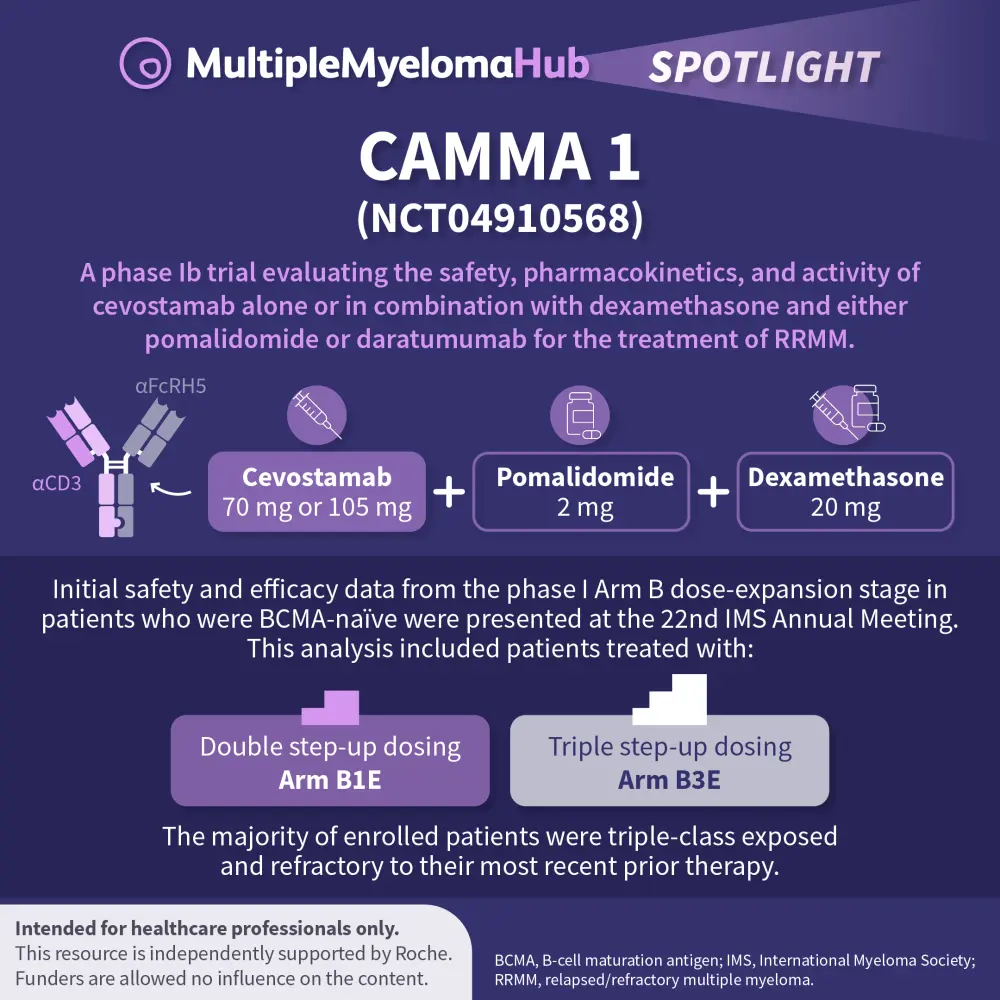
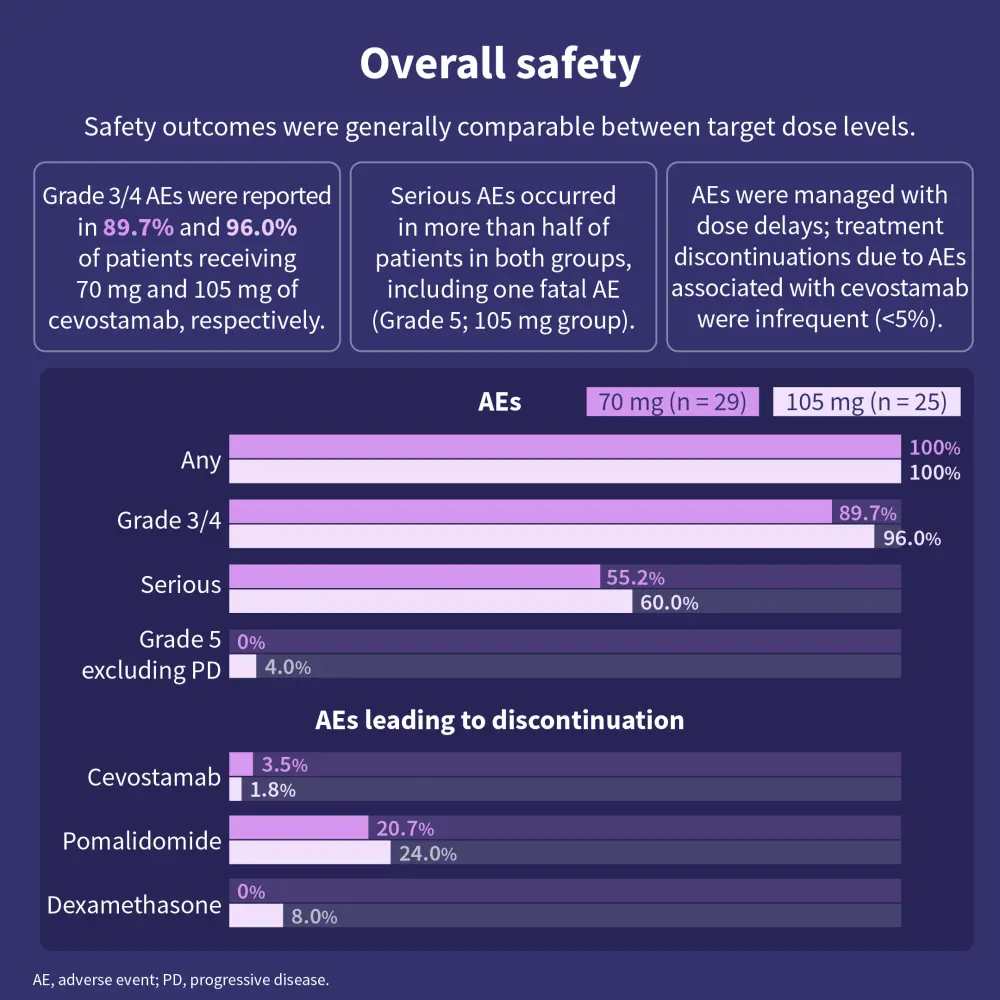
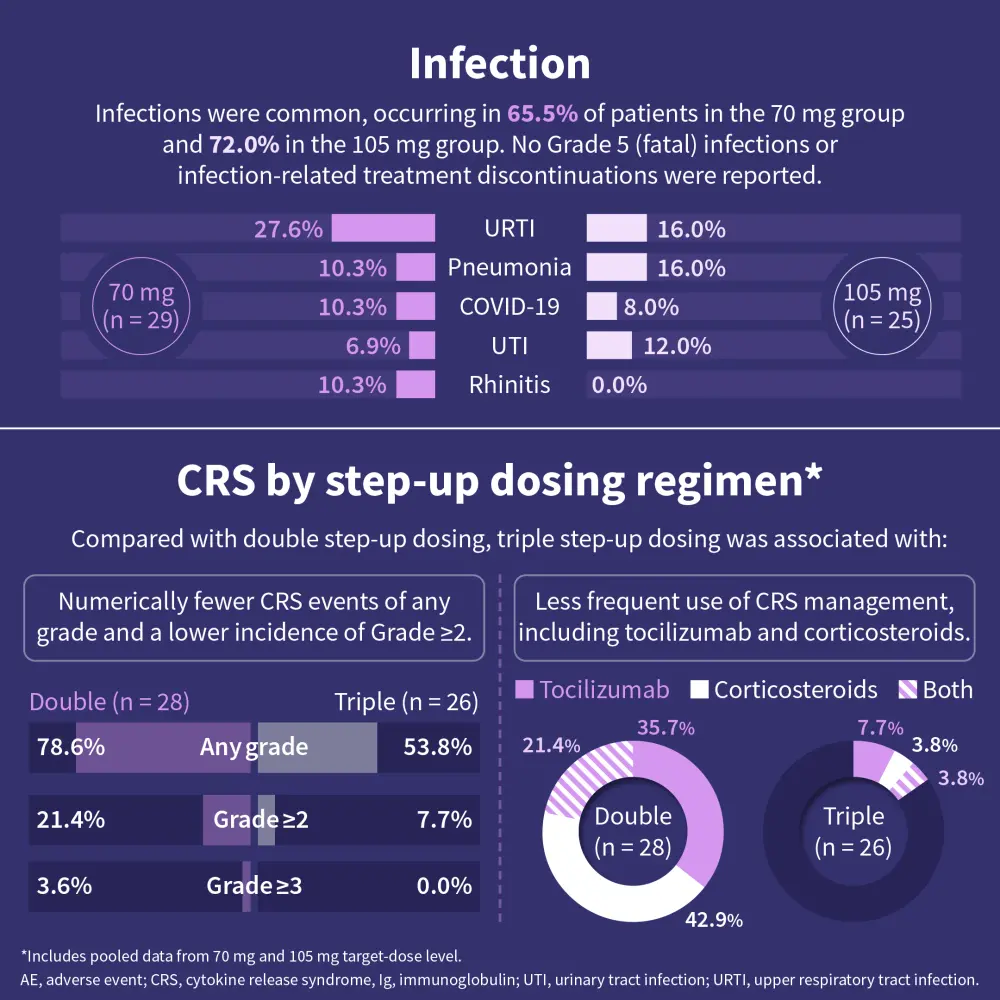
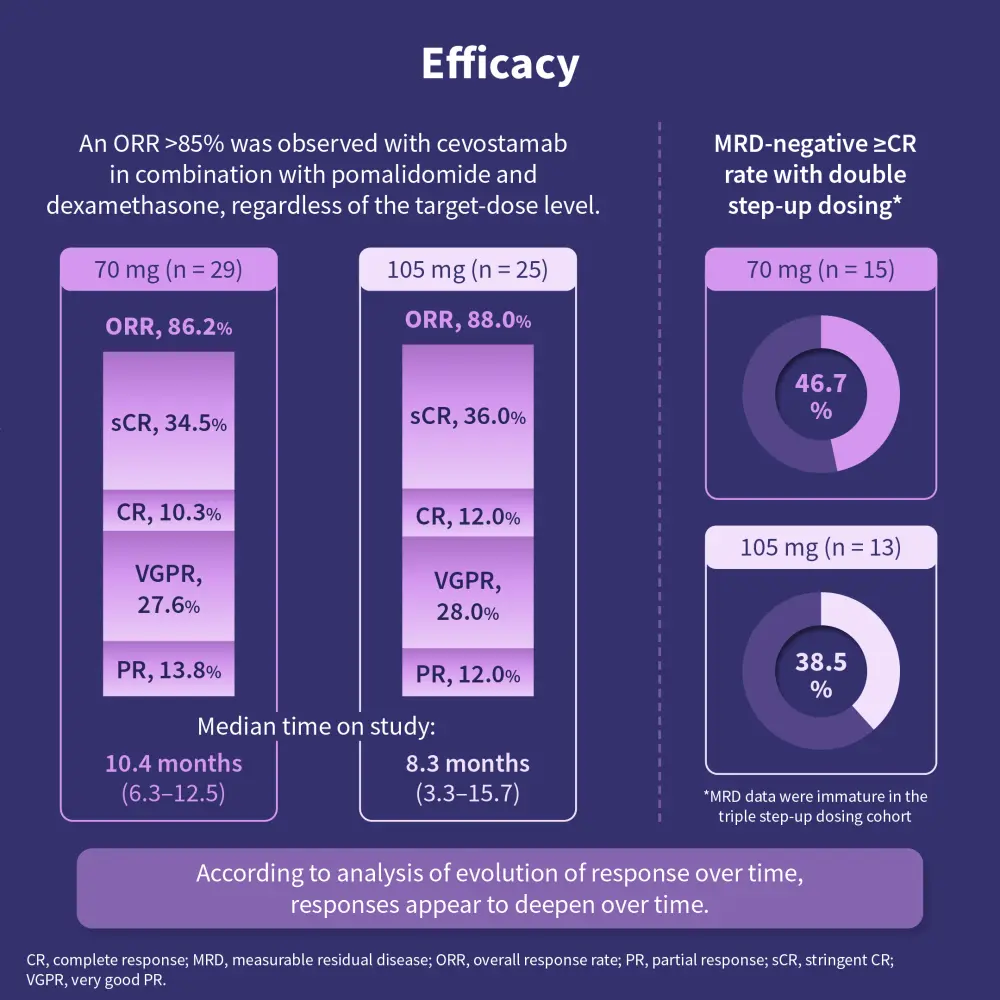
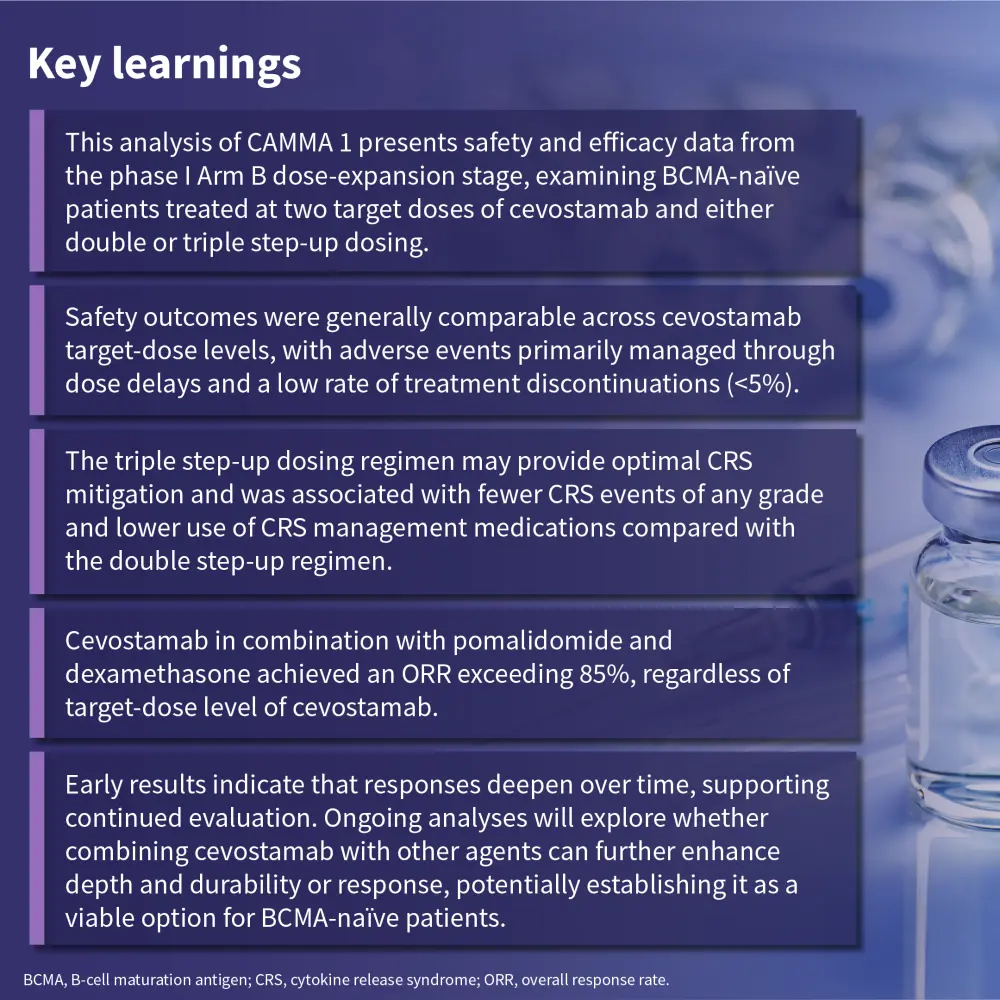
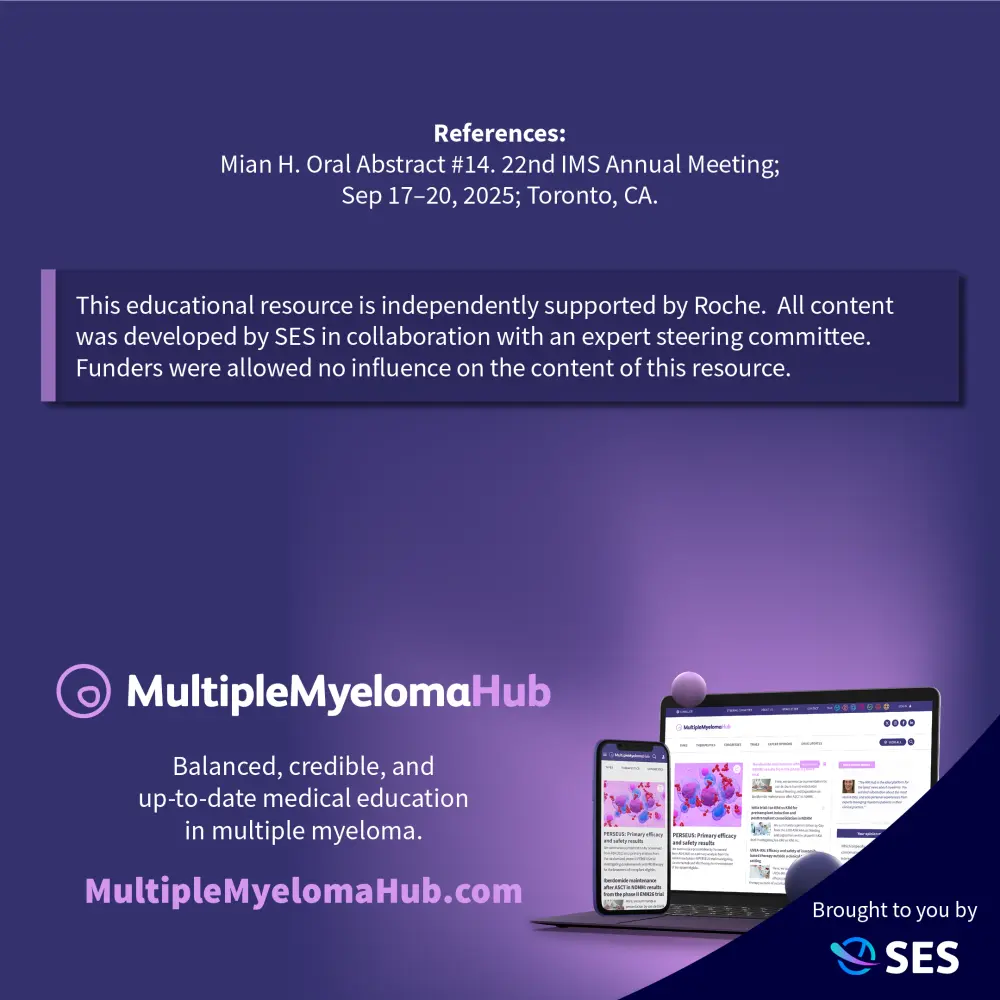
This educational resource is independently supported by Roche. All content was developed by SES in collaboration with an expert steering committee; funders were allowed no influence on the content of this resource.
References
Please indicate your level of agreement with the following statements:
The content was clear and easy to understand
The content addressed the learning objectives
The content was relevant to my practice
I will change my clinical practice as a result of this content
Your opinion matters
On average, how many patients with MGUS/smoldering MM do you see in a month?




.webp&w=3840&q=75)